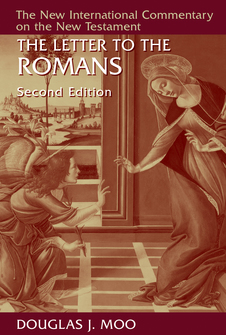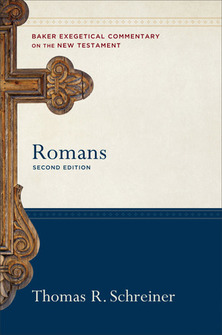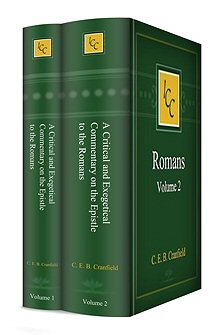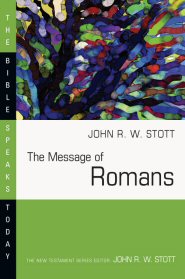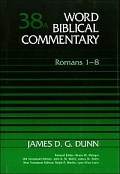Best Resources on Romans
"In his letter to the Roman church, Paul lays out his argument for unifying Jews and non-Jews in Christ—and in the process, instructs his readers on how to restore their relationship with God. As Paul explains, we only find unity with God and with one another through God’s Son, Jesus. Christ represents the fulfillment of God’s covenant promises, going all the way back to Abraham. Paul proclaims that Christ is the very righteousness of God and the means for us sinners to become righteous—to be saved.
"The book of Romans dates to the end of Paul’s third missionary journey; he most likely wrote this letter from the Greek city of Corinth in the mid-50s AD (Acts 19:21; 20:3). Gaius, whom Paul mentions is his host (Rom 16:23), is likely the same Gaius mentioned as a resident of Corinth in another of Paul’s letters (1 Cor 1:14)."
—Faithlife Study Bible, Lexham Press
Everything You Need to Study & Teach Romans
Expository Preaching Kits are curated resources all focused on helping you teach a single book of the Bible—keeping you prepared without weighing you down.
Best Commentaries on Romans
Douglas J. Moo, New International Commentary on the New Testament (NICNT), Eerdmans, 2018, 1,184 pp.
For more than twenty years Douglas Moo’s NICNT volume on Romans has been providing pastors, students, and scholars with profound insight into Paul’s most famous letter. In this thorough revision of his commentary, Moo deals with issues that have come into prominence since the first edition (1996), incorporating the latest research and rewriting the text throughout for better comprehension.
- Level: Intermediate
- Type: Expository
Thomas R. Schreiner, Baker Exegetical Commentary on the New Testament (BECNT), Baker, 2018, 944 pp.
This substantive evangelical commentary on Romans by a leading biblical scholar is one of the most popular in the award-winning BECNT series and has been praised as a great preaching commentary. This new edition, updated and revised throughout, reflects Thomas Schreiner's mature thinking on various interpretive issues. As with all BECNT volumes, this commentary features the author's detailed interaction with the Greek text, extensive research, thoughtful verse-by-verse exegesis, and a user-friendly design. It admirably achieves the dual aims of the series—academic sophistication with pastoral sensitivity and accessibility—making it a useful tool for pastors, Church leaders, students, and teachers.
- Level: Advanced
- Type: Technical
C. E. B. Cranfield, International Critical Commentary (ICC), Bloombury, 1975–1979, 1,314 pp.
This work on Romans by Cranfield is a two-volume set that has become one of the most important treatments of this Pauline epistle. The introduction to the work includes textual, structural, and exegetical analysis. Cranfield also covers the history of exegesis of Romans and the history of its textual transmission. The commentary itself draws out the historical and theological elements of Paul's letter.
- Level: Advanced
- Type: Technical
John Stott, The Bible Speaks Today (BST), InterVarsity Press, 2001, 432 pp.
John Stott joins a chorus of distinguished voices of the Church who have pondered and lived the great themes of Romans and who have tuned our ears to hear its rich harmonies and meditate on its broad vision. In the classic tradition of great Christian leaders who have commented on Romans, Stott expounds Paul's words, themes, and arguments. The power of the gospel, the righteousness of God revealed from heaven, is clearly addressed to today's men and women who have answered its summons.
- Level: Basic
- Type: Devotional
James D. G. Dunn, Word Biblical Commentary (WBC), Thomas Nelson, 1988, 972 pp.
See Romans in the light of modern historical and cultural studies with this commentary from James D. G. Dunn. Dunn maintains that it is imperative to grasp the coherence of Paul’s thought as it moves with sustained logic and consistent rigor from the opening announcement of God’s righteousness revealed in Christ and the gospel through each interlocking section of this epistle. He insists that the letter must be read and understood within a specific historical and cultural context—Paul’s background in Judaism, his perception of the role of the law as a marker of national Jewish identity, God’s saving actions in Christ both in continuity with the past and as a decisive new chapter in salvation and world history, and the ongoing eschatological tension between the “already” and the “not yet"— clues that inform a penetrating and moving piece of commentary writing.
- Level: Advanced
- Type: Technical
Best Books on Romans
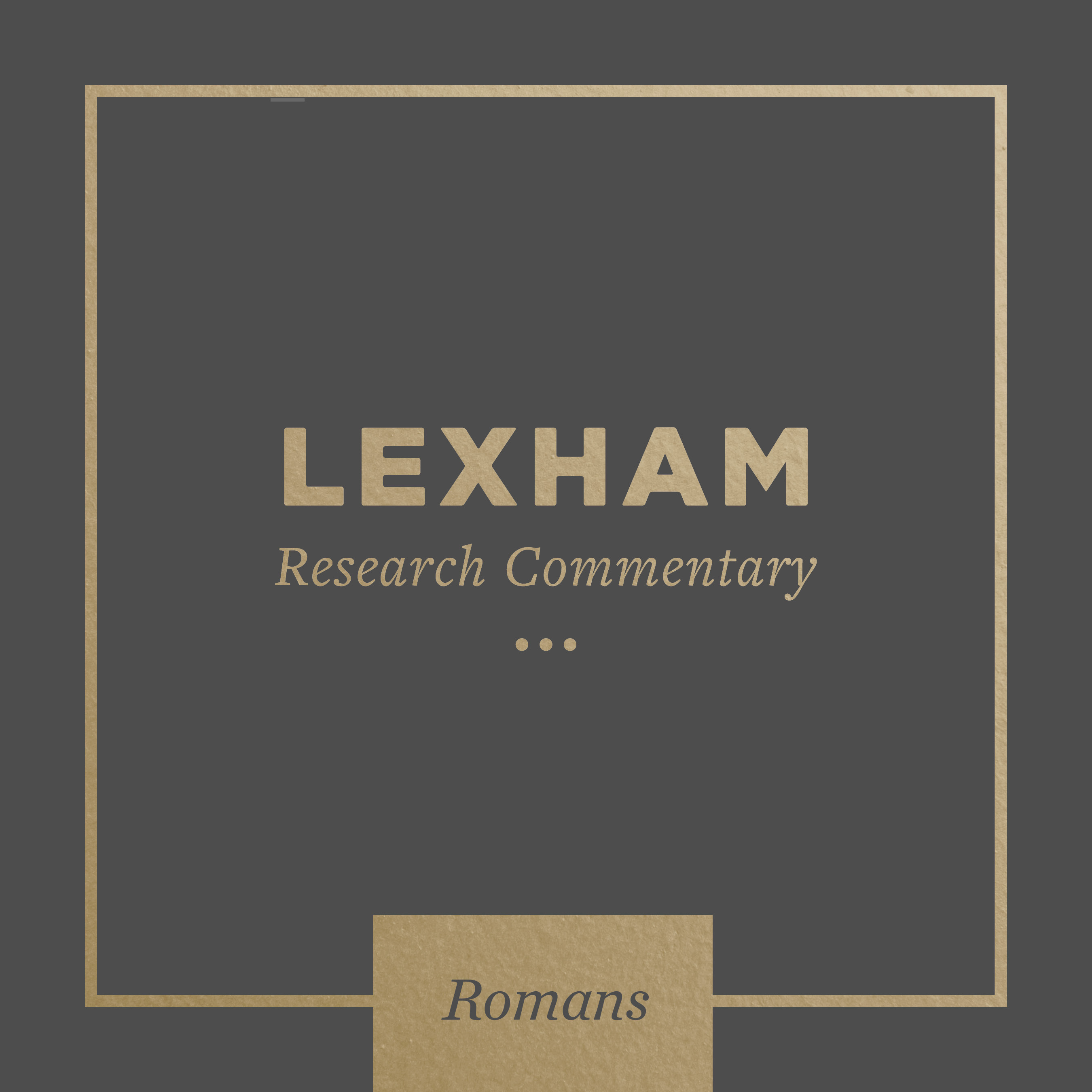
Lexham Research Commentary: Romans
Paul’s letter to the Romans is regarded not only as his most significant writing but also as one of the most important writings in the history of the Christian faith. The righteousness of God takes center stage in Paul’s letter to Rome. Paul declares that the gospel makes possible salvation for every person who believes in the salvific life and death of Christ.
Learn more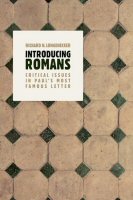
Introducing Romans: Critical Issues in Paul’s Most Famous Letter
Paul’s Letter to the Romans has proven to be a particular challenge for commentators, with its many highly significant interpretive issues often leading to tortuous convolutions and even “dead ends” in their understanding of the letter. Here, Richard N. Longenecker takes a comprehensive look at the complex backdrop of Paul’s letter and carefully unpacks a number of critical issues.
Learn more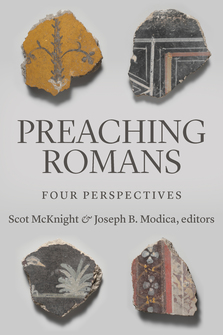
Preaching Romans: Four Perspectives
Scot McKnight and Joseph B. Modica have assembled this stellar one-stop guide exploring four major interpretive perspectives on the apostle Paul: Reformational, New, Apocalyptic, and Participationist. First elucidated by a scholarly essay, each perspective is then illuminated by three sermons expositing various passages from Paul’s magisterial letter to the Romans.
Learn more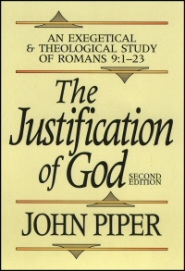
The Justification of God: An Exegetical and Theological Study of Romans 9:1–23, 2nd ed.
Undergirded by the author’s belief that the sovereignty of God is too precious a part of our faith to dismiss or approach weak-kneed, this book explores the Greek text and Paul’s argument with singular deftness.
Learn more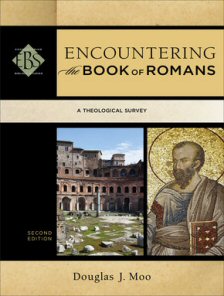
Encountering the Book of Romans, Second Edition
Leading New Testament scholar Douglas Moo offers a guide to the book of Romans that is informed by current scholarship and written at an accessible level. The new edition has been updated throughout and features a new interior design. After addressing introductory matters and laying the groundwork for reading Romans, Moo leads readers through the weighty argument of this significant book, highlighting key themes, clarifying difficult passages, and exploring the continuing relevance of Romans. This book is designed for the undergraduate classroom and includes pedagogical aids such as photos and sidebars.
Learn moreBest Courses on Romans
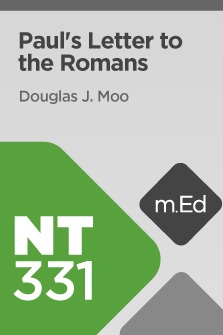
Mobile Ed: NT331 Book Study: Paul's Letter to the Romans (10 hour course)
Paul’s epistle to the Romans is one of the most important theological treatises ever written. In this upper-division course, Douglas Moo traces the major theological themes of Romans, following Paul’s flow of thought from argument to argument. Moo covers essential historical and theological backgrounds and brings students into Romans’ traditional interpretations and the newer ideas developed by the New Perspective on Paul.
Learn more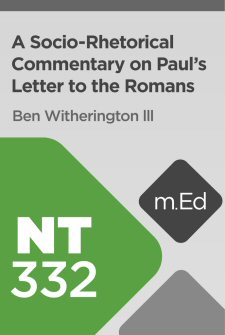
Mobile Ed: NT332 A Socio-Rhetorical Commentary on Paul’s Letter to the Romans (10 hour course)
Understanding the rhetorical craft that Paul employs is essential for interpreting his letter to the Romans. No less important is understanding the specific issues Paul’s Roman audience was facing and how he uses his arguments to resonate profoundly with them. In this course, Dr. Ben Witherington III provides a socio-rhetorical analysis of this letter, examining the social setting of Paul’s writing and exploring the culture of first-century Rome. He investigates the rhetoric Paul uses, and he considers the flow of Paul’s arguments to reveal the letter’s themes of the righteousness of God and the reconciliation of humanity—Jew and gentile—in Christ.
Learn more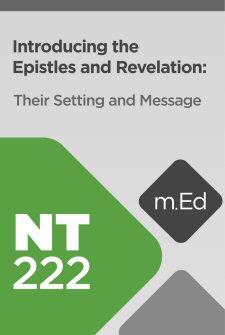
Mobile Ed: NT222 Introducing the Epistles and Revelation: Their Setting and Message (12 hour course)
This course explores the books of Romans through Revelation with particular attention to their historical setting and culture. In addition to providing an overview of each book, topics such as authorship, audience, theology, major themes, presenting problems and pastoral strategies are discussed in depth.
Learn more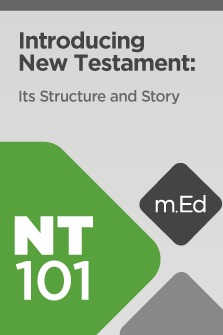
Mobile Ed: NT101 Introducing New Testament: Its Structure and Story (6 hour course)
Gain a better understanding of the New Testament's structure and themes with New Testament scholar Dr. Lynn Cohick. You'll examine elements such as historical context, writing techniques of the Gospels' authors, developments in the early Church, the settings of the Epistles, the genre of the book of Revelation, and the life of Jesus.
Learn more